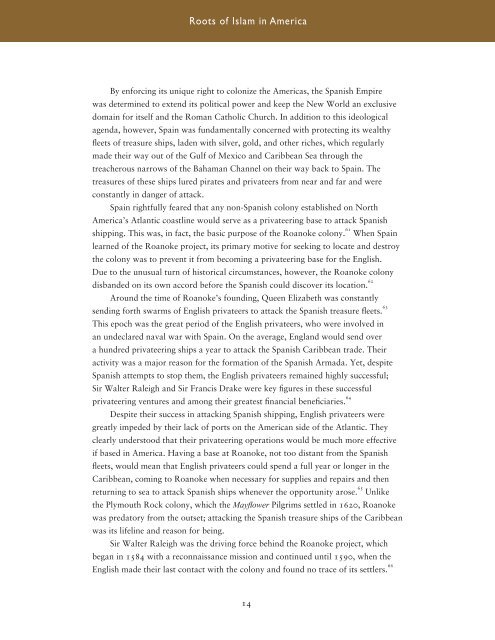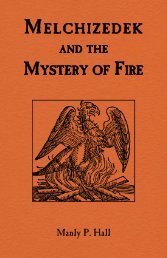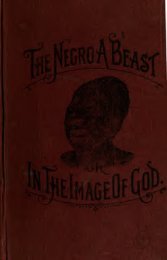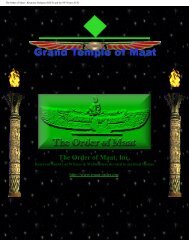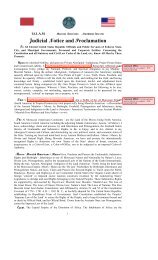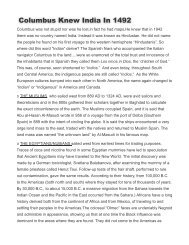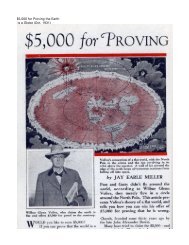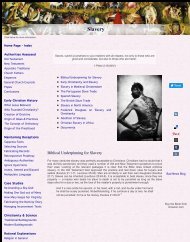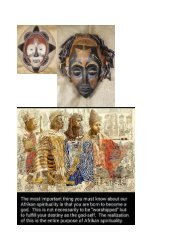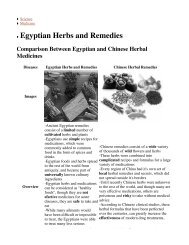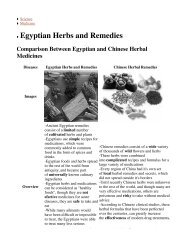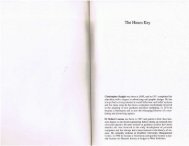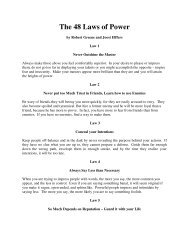Turks,Moors,& Moriscos in Early America
Create successful ePaper yourself
Turn your PDF publications into a flip-book with our unique Google optimized e-Paper software.
!""#$%"&%'$()*%+,%-*./+0)<br />
By enforc<strong>in</strong>g its unique right to colonize the <strong>America</strong>s, the Spanish Empire<br />
was determ<strong>in</strong>ed to extend its political power and keep the New World an exclusive<br />
doma<strong>in</strong> for itself and the Roman Catholic Church. In addition to this ideological<br />
agenda, however, Spa<strong>in</strong> was fundamentally concerned with protect<strong>in</strong>g its wealthy<br />
fleets of treasure ships, laden with silver, gold, and other riches, which regularly<br />
made their way out of the Gulf of Mexico and Caribbean Sea through the<br />
treacherous narrows of the Bahaman Channel on their way back to Spa<strong>in</strong>. The<br />
treasures of these ships lured pirates and privateers from near and far and were<br />
constantly <strong>in</strong> danger of attack.<br />
Spa<strong>in</strong> rightfully feared that any non-Spanish colony established on North<br />
<strong>America</strong>’s Atlantic coastl<strong>in</strong>e would serve as a privateer<strong>in</strong>g base to attack Spanish<br />
shipp<strong>in</strong>g. This was, <strong>in</strong> fact, the basic purpose of the Roanoke colony. 61 When Spa<strong>in</strong><br />
learned of the Roanoke project, its primary motive for seek<strong>in</strong>g to locate and destroy<br />
the colony was to prevent it from becom<strong>in</strong>g a privateer<strong>in</strong>g base for the English.<br />
Due to the unusual turn of historical circumstances, however, the Roanoke colony<br />
disbanded on its own accord before the Spanish could discover its location. 62<br />
Around the time of Roanoke’s found<strong>in</strong>g, Queen Elizabeth was constantly<br />
send<strong>in</strong>g forth swarms of English privateers to attack the Spanish treasure fleets. 63<br />
This epoch was the great period of the English privateers, who were <strong>in</strong>volved <strong>in</strong><br />
an undeclared naval war with Spa<strong>in</strong>. On the average, England would send over<br />
a hundred privateer<strong>in</strong>g ships a year to attack the Spanish Caribbean trade. Their<br />
activity was a major reason for the formation of the Spanish Armada. Yet, despite<br />
Spanish attempts to stop them, the English privateers rema<strong>in</strong>ed highly successful;<br />
Sir Walter Raleigh and Sir Francis Drake were key figures <strong>in</strong> these successful<br />
privateer<strong>in</strong>g ventures and among their greatest f<strong>in</strong>ancial beneficiaries. 64<br />
Despite their success <strong>in</strong> attack<strong>in</strong>g Spanish shipp<strong>in</strong>g, English privateers were<br />
greatly impeded by their lack of ports on the <strong>America</strong>n side of the Atlantic. They<br />
clearly understood that their privateer<strong>in</strong>g operations would be much more effective<br />
if based <strong>in</strong> <strong>America</strong>. Hav<strong>in</strong>g a base at Roanoke, not too distant from the Spanish<br />
fleets, would mean that English privateers could spend a full year or longer <strong>in</strong> the<br />
Caribbean, com<strong>in</strong>g to Roanoke when necessary for supplies and repairs and then<br />
return<strong>in</strong>g to sea to attack Spanish ships whenever the opportunity arose. 65 Unlike<br />
the Plymouth Rock colony, which the !"#$%&'( Pilgrims settled <strong>in</strong> 1620, Roanoke<br />
was predatory from the outset; attack<strong>in</strong>g the Spanish treasure ships of the Caribbean<br />
was its lifel<strong>in</strong>e and reason for be<strong>in</strong>g.<br />
Sir Walter Raleigh was the driv<strong>in</strong>g force beh<strong>in</strong>d the Roanoke project, which<br />
began <strong>in</strong> 1584 with a reconnaissance mission and cont<strong>in</strong>ued until 1590, when the<br />
English made their last contact with the colony and found no trace of its settlers. 66<br />
14


